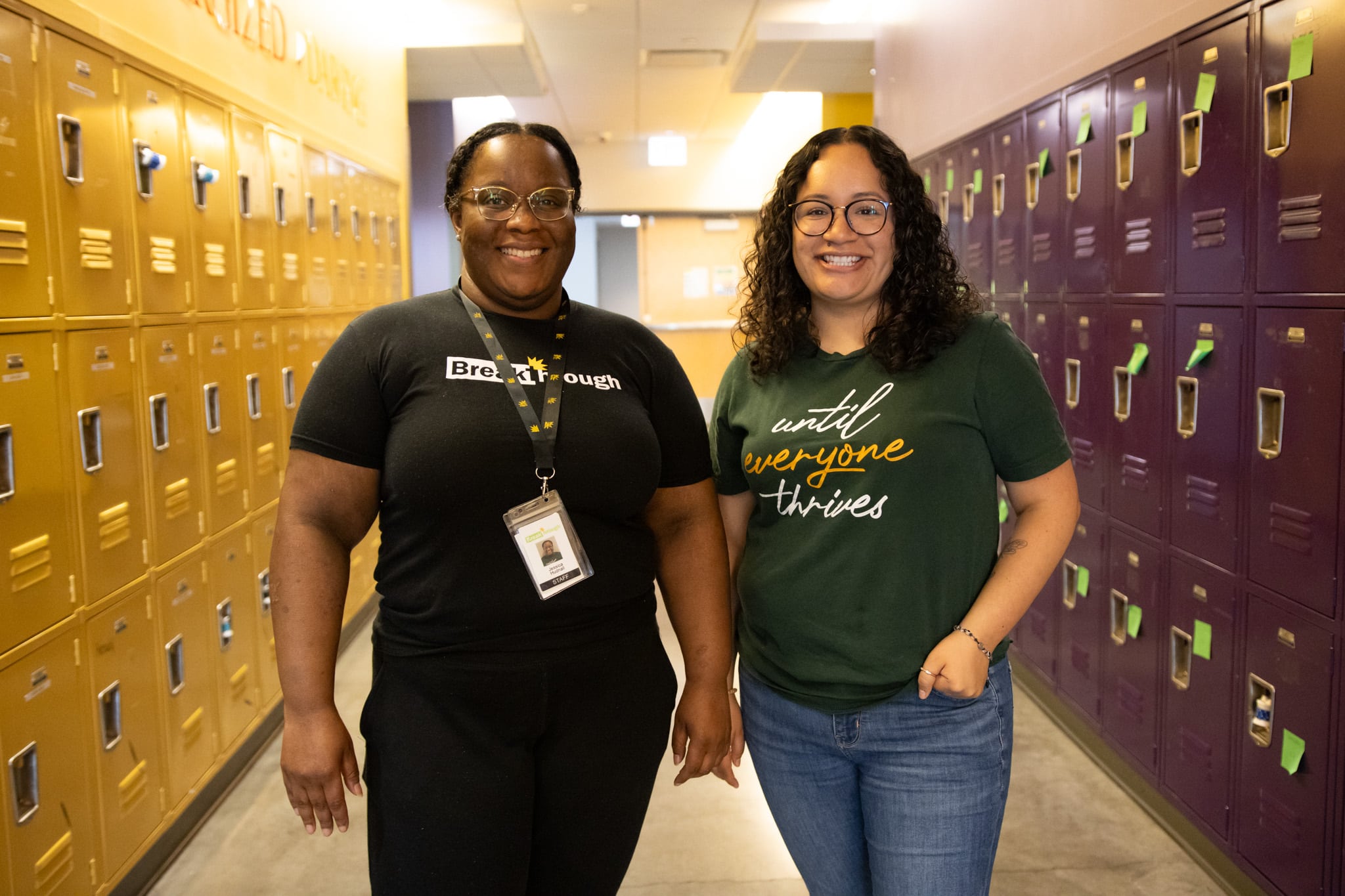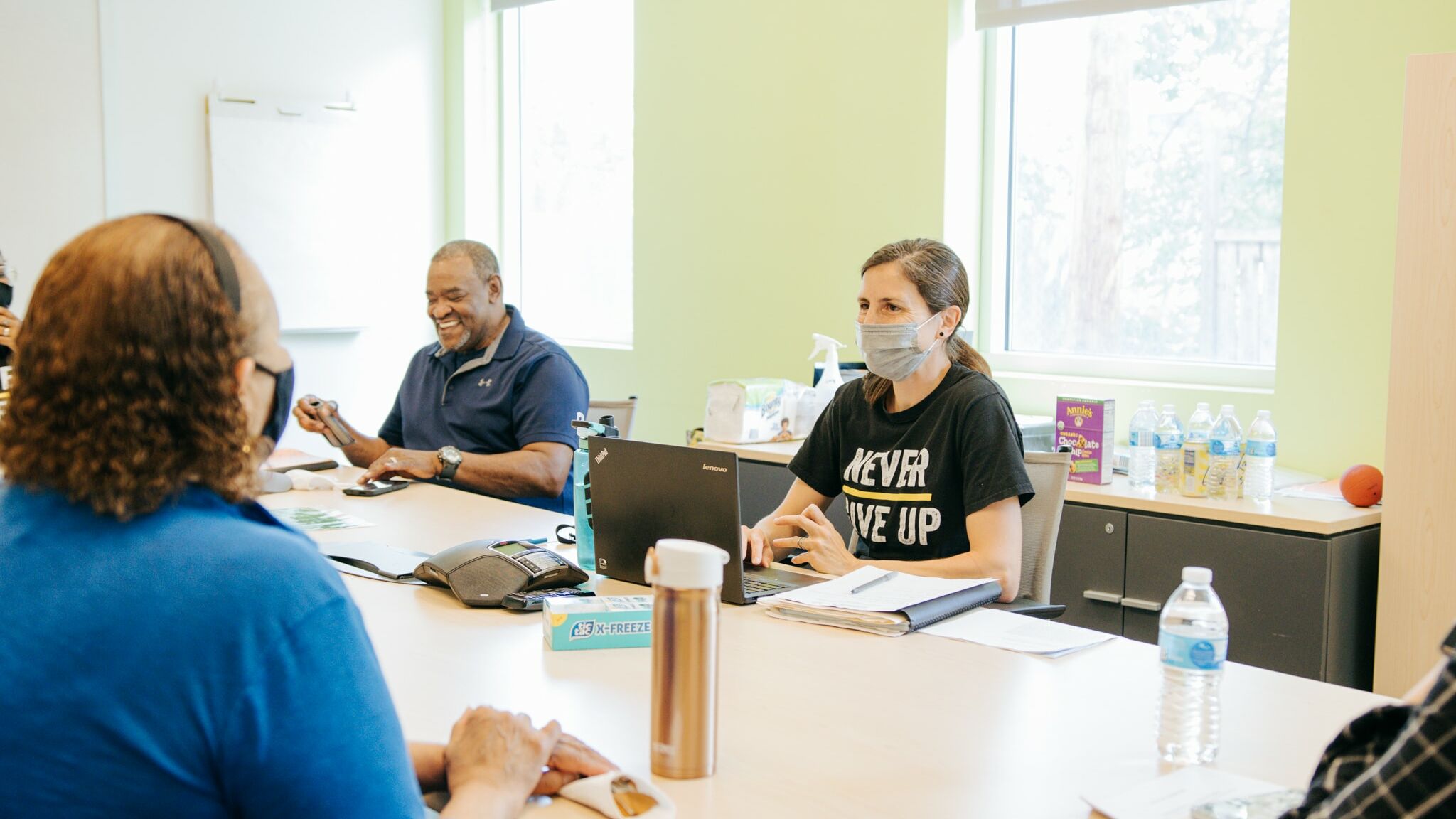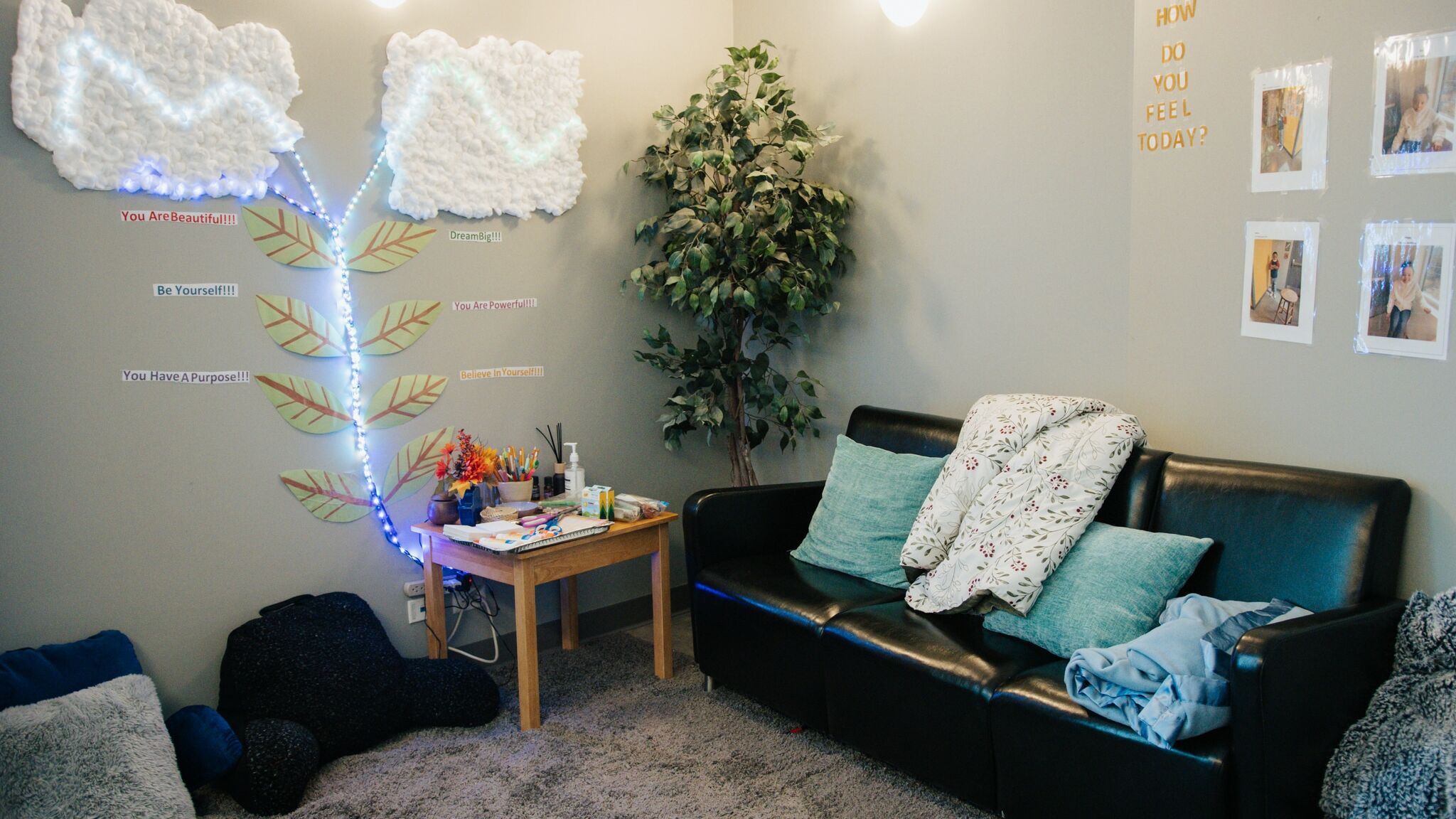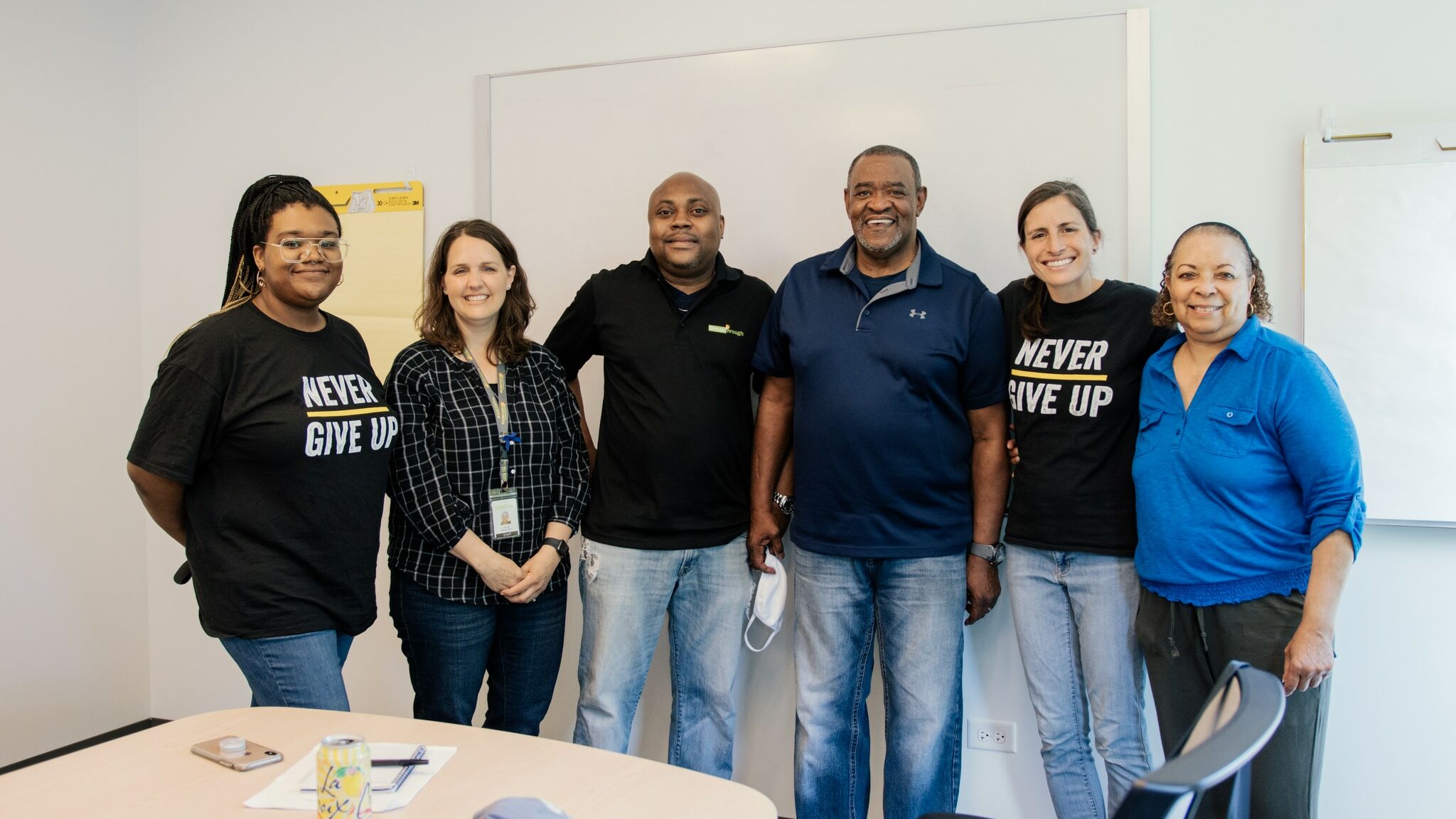For residents in Garfield Park, the greatest barrier to behavioral health services is a lack of access. While a zip code in Chicago’s Loop has 324 licensed clinicians per 1,000 individuals, zip codes on Chicago’s west and south sides have less than 1 licensed clinician per 1,000 residents. By integrating services into youth programs, Jessica Hudnall and Daisy Sanchez are increasing access to equitable care for local families.
Free, On-Site Behavioral Health Care
Jessica, Associate Director of Behavioral Health, and Daisy, Youth Behavioral Health Specialist, are clinicians who provide mental health care in the Breakthrough Youth Network. This includes the Nettie Bailey Student Achievement Program, an after-school program for students K-8, and Breakthrough Beyond, programs for high school and post-secondary students.
“We have an opportunity here to provide free, on-site services so students and parents really do take advantage of that,” said Daisy. “It helps that this is an opportunity where they don’t have to worry about dropping kids to and from their appointment. It’s integrated within the program so it’s easier for parents to take advantage of services.”
Last year, 44 students in the after-school program have participated in services.

Within the Breakthrough Beyond program, Breakthrough partners with students who have been disengaged from Chicago Public Schools to complete their education. “Many of our students who come through that program are involved in the justice system, many of them are currently engaged in various substances, so a lot of them have a need for mental health services,” said Jessica. The clinicians provide those services and identify unmet basic needs, such as housing, food, and safety.
“When they come to Breakthrough, they’re able to get food, they’re able to get credit recovery or GED recovery or after-school help, and they’re also able to get that behavioral health piece,” said Jessica.
A Wrap-Around Network of Support
The youth behavioral health team is reimagining therapy by thoughtfully integrating services into programs day-to-day. This allows them to build relationships and to offer support at the moment it is needed. “I have found that therapy looks different in this setting,” said Jessica. “I am always in the space. I am in the classrooms, doing check-ins, and leading groups.”
Jessica and Daisy work closely with other Breakthrough staff. “We build relationships with the staff to let them know about services, and if you need somebody to talk to, you can connect with us,” said Jessica. They meet regularly to talk about concerns with students, provide education on trauma, and identify areas of collaboration. This collaborative approach also includes partnering with families through involvement in students’ treatment and parent sessions.
Additionally, because of the comprehensiveness of Breakthrough’s work, as clinicians partner with students and families, treatment is not limited to traditional therapy. “I think the really cool opportunity here is that there are so many programs,” said Daisy. Recently, when a referral for a student came in, the student not only saw a therapist but also enrolled in a sports program.
Through hands-on engagement and collaboration, Breakthrough provides a wrap-around network of support for students.
Increasing Access Improves Wellbeing
Residents in Chicago’s Loop are expected to live 80 years, whereas, in East Garfield Park, just a few miles away, residents have a life expectancy of 66 years. It is clear that in neighborhoods with more resources, there are fewer health disparities and people live longer.
“It is because of social determinants of health, because of access to resources, because of access to equitable care,” said Jessica. Jessica and Daisy say that, while there has been a stigma around mental health in African American communities in the past, they are seeing a shift away from that.
“There is a need for it, we want it, but there is a limitation to the access of care,” said Jessica. “Having us here creates access and equitable care for people who really want it and deserve it.”
Related Posts
February 25, 2022
Holistic Behavioral Health Services Respond to the Opioid Crisis
As the opioid crisis reaches record-breaking numbers in the city of Chicago and co-occurring mental health and substance use disorders become increasingly common, Breakthrough has taken steps to address the needs of every individual who walks through our doors.
September 27, 2021
Behavioral Health Services Help to Holistically Meet Needs of Youth
Last year, with the hiring of a youth behavioral health coordinator, the Breakthrough Youth Network began offering behavioral health services to school-age youth.
Breakthrough Youth NetworkNettie Bailey Student Achievement ProgramBehavioral Health
May 26, 2021
Behavioral Health Team Supports Staff During Mental Health Awareness Month
During Mental Health Awareness Month, Lisa Wiese, Director of Behavioral Health, shares about seeking mental wellness as staff.





